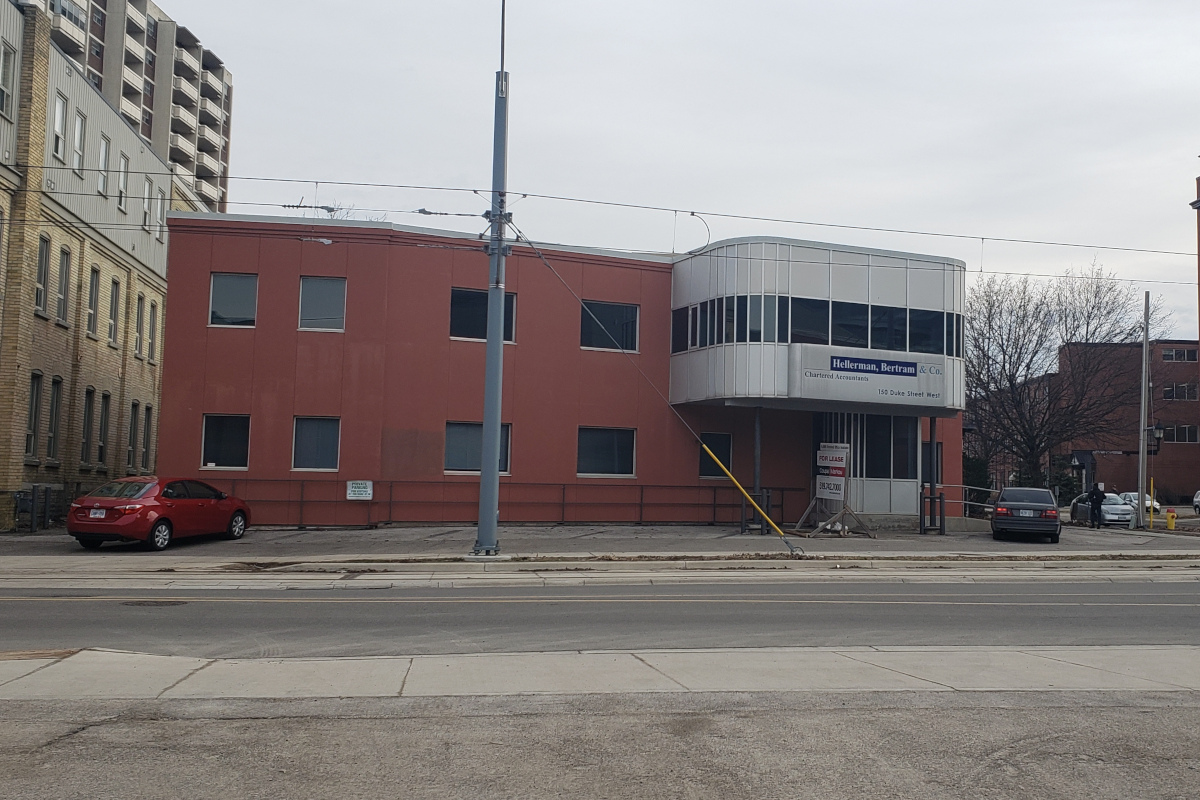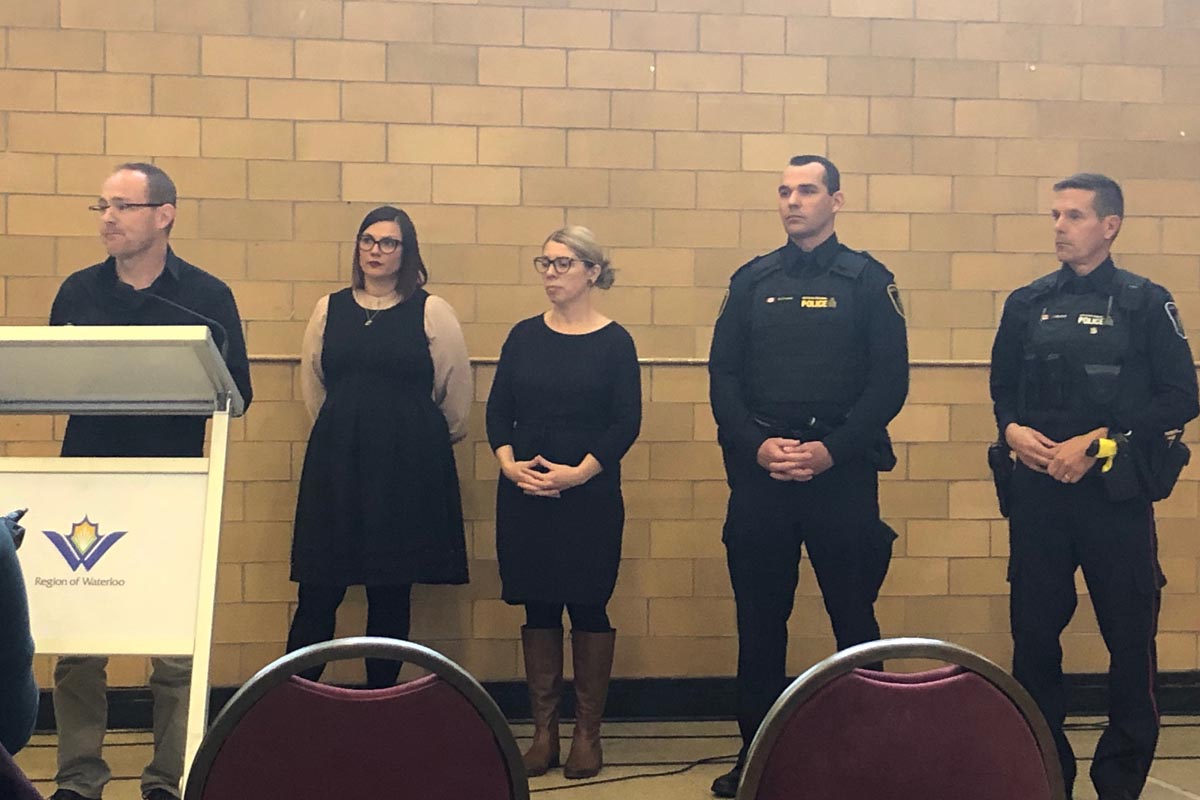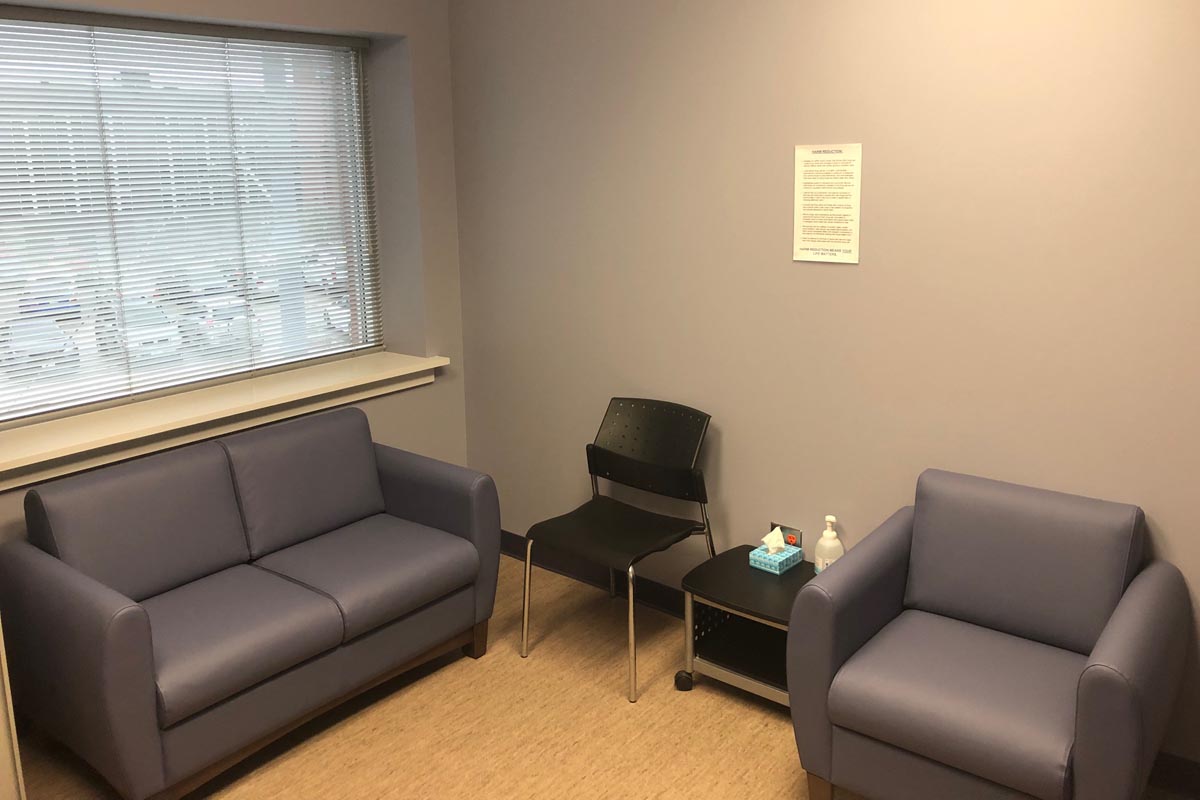An interim supervised consumption site will open on Duke Street in Kitchener on Tuesday, and there are still many unanswered questions about its future.

Uncertainty remains over how quickly clients will embrace it, how to police it without becoming intrusive and whether the site will need adjustments when it permanently opens. The permanent site is expected to be up and running by early 2020.
One thing is certain among staff: the facility is sorely needed in the battle against the opioid crisis. There have been 50 deaths this year related to opioids, according to police statistics.
Ahead of the opening, members of the media were taken on a tour of the facility.
On hand were members of Waterloo Regional Police, Waterloo Public Health and the Sanguen Health Centre.
When the site opens, officials say there may not be too many people using the site.
“We anticipate that we may start slowly in terms of numbers, but that is what we have learned from sites across Ontario, is that it really varies,” said Grace Bermingham, manager of harm reduction with the Region of Waterloo Public Health.
Dr. Chris Steingart, founder and executive director of Sanguen Health Centre, agreed but said his outreach teams are working to get the word out.
READ MORE: Interim CTS site in Kitchener to open Oct. 15
“I think it’s more likely and our expectation is that, as Grace said, that this will start out slow and ramp up,” Steingart said. “But at the same time, there’s been a lot of anticipation around the site and the work that we do in the community definitely has gotten the word out. People are anticipating the site so we’re not entirely sure.”

Get daily National news
Part of that may be a distrust with Waterloo Regional Police, who will face a tricky balancing act when the consumption site opens.
“We’ll have to ensure that we allow people who are seeking these services to access the site unencumbered and to not feel overly monitored by police,” Insp. Mark Crowell said. “We want people to feel like they can access the service without undue scrutiny from us.”
But he added part of that balance will also include the need to enforce laws outside of the consumption site.
“There is no free for all. There is no buffer zone, no free zone where criminal activity, provincial offences or local bylaws will go unenforced.”
Waterloo police have been asked many times how officers will be expected to handle interactions around the site, Crowell said.
“The most often answer we provide in policing is it depends. Every circumstance will be dealt with on an individual basis.”
READ MORE: Construction underway on supervised consumption site in Kitchener
He says the force realizes the need for the site.
“We do not condone perpetual use of illegal drugs,” he said. “We support an active, healthy lifestyle and in every respect.
“But we have a sincere responsibility to preserve life.”
When clients do arrive at the site after it opens on Tuesday, they will be greeted by a security guard who will guide them upstairs.
Steingart says the guard is in place to protect visitors from heading through the first floor, which is under construction for when the permanent site opens.
“But then it’s right upstairs and when you come upstairs there’s a desk where there will be a peer there to greet and do a bit of an intake,” he explained.
After that, clients will head to a waiting area.
How long that wait will be will depend upon “how many people are there at the time.”
The next step is to enter into a room where there are two consumption booths with a nurse at a desk.
READ MORE: Feds give green light to supervised consumption site in downtown Kitchener
The nurse is on hand to help with a wide variety of tasks, including injection safety and helping to find good veins and testing doses, according to Heather Elliott, a public health nurse with Waterloo Public Health.
“We also have emergency supplies in the room so that if a client did seem to be overdosing we would be able to provide them with oxygen if needed,” she explained, noting there will also be naloxone and oral airways on hand.
There is a time limit for how long a visitor will be able to spend in that room, depending on how busy the site is.
Afterward, the clients can move onto a second room, which is also referred to by staff as the “chill room.”
Violet Umanetz, director of outreach for Sanguen health Services, says they have been discussing what should be offered at SCS and will continue to do so during its interim stage.
“We did all sorts of consultations and feasibility studies and things over the years leading up to this, where we asked people, What do you want? What do you need? and, What would that look like?” she explained.
Umanetz said that over the years some of those needs may have changed so they are going to continue those discussions.
“So that when we open the permanent site downstairs, we can just have it ready to go,” she said.











Comments
Want to discuss? Please read our Commenting Policy first.